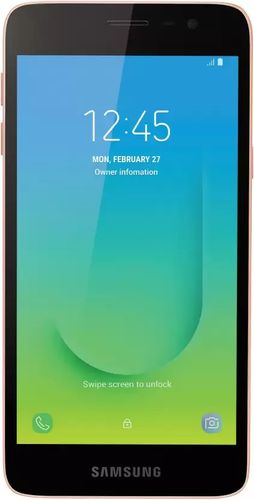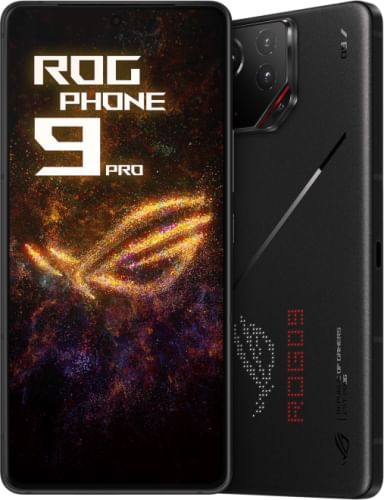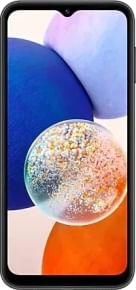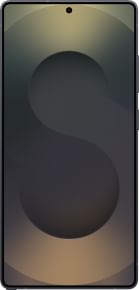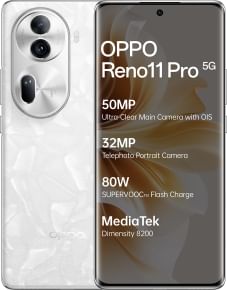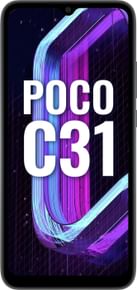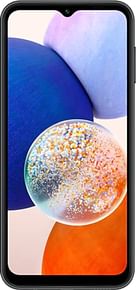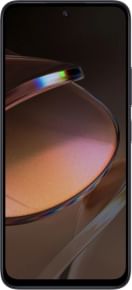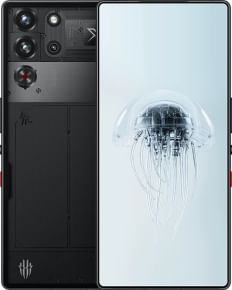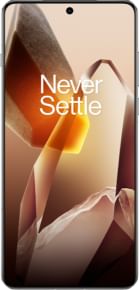Samsung Galaxy J2 Core vs Asus ROG Phone 9 Pro
Quick Comparison
Asus ROG Phone 9 Pro has better RAM than Samsung Galaxy J2 Core. In terms of display resolution, Asus ROG Phone 9 Pro has better resolution of 2400 x 1080 than Samsung Galaxy J2 Core which has resolution of 960 x 540. Asus ROG Phone 9 Pro has more internal memory than Samsung Galaxy J2 Core
| Name | Samsung Galaxy J2 Core | Asus ROG Phone 9 Pro |
| RAM | 1 GB | 16 GB |
|---|---|---|
| Display | 5 in | 6.78 in |
| Internal Memory | 8 GB | 512 GB |
| Battery | 2600 mAh | 5800 mAh |
| Camera | 8 MP | 50 MP + 32 MP + 13 MP Triple |
| Price | Rs. 5980 | Rs. 101990 |
Related Products
Detailed Comparison
Price And Launch
The launch Date of the first phone is August 24, 2018. The cost of Samsung Galaxy J2 Core is Rs. 5980. The launch Date of the second phone is November 19, 2024. The Expected cost of Asus ROG Phone 9 Pro is Rs. 101990.
Display comparison
Asus ROG Phone 9 Pro has larger screen size of 6.78 inches in comparison to Samsung Galaxy J2 Core's 5 inch screen. Samsung Galaxy J2 Core has TFT Screen type where as Asus ROG Phone 9 Pro has LTPO AMOLED Screen type. Asus's phone has display density of 388 PPI & Samsung's phone has only 220 PPI display density. Samsung Galaxy J2 Core has 16:9 aspect ratio where as Asus ROG Phone 9 Pro has 20.4:9 aspect ratio.
Memory comparison
Asus ROG Phone 9 Pro's larger 16 GB RAM is better for playing games and all with respect to Samsung Galaxy J2 Core's lower 1 GB RAM. Asus ROG Phone 9 Pro has more Internal Memory (512 GB) than Samsung Galaxy J2 Core (8 GB).
Camera comparison
Asus ROG Phone 9 Pro's 50 MP + 32 MP + 13 MP Triple Rear Camera outshines Samsung Galaxy J2 Core's 8 MP Rear Camera in terms of resolution. Asus ROG Phone 9 Pro will be better choice if you're looking to click lot of selfies as it has better 32 MP Front Camera in comparison to Samsung Galaxy J2 Core's 5 MP Front Camera.
Technical comparison
Both the phones has Android Operating System but the first one runs on version v8.1 Oreo (Go edition) and the second one on 15 version.
Related Comparisons
Full Comparison
| Name | Samsung Galaxy J2 Core | Asus ROG Phone 9 Pro |
| General | ||
| Model | Galaxy J2 Core | ROG Phone 9 Pro |
| Sim Type | Dual Sim, GSM+GSM | Dual Sim, GSM+GSM |
| Dual Sim | Yes | Yes |
| Sim Size | Nano+Nano SIM | |
| Device Type | Smartphone | Smartphone |
| Release Date | August 24, 2018 | November 19, 2024 |
| In The Box | Clear Case, USB-C to USB-C cable (120 cm), Ejector pin (SIM tray needle), USB power adapter (65-Watt), Documentation (user guide, warranty card) | |
| Design | ||
| Dimensions | 72.1 x 143.4 x 8.9 mm | 76.8 x 163.8 x 8.9 mm |
| Weight | 154 g | 227 g |
| Bezel less | No | |
| Colors | Phantom Black | |
| Display | ||
| Type | Color TFT Screen (16M Colors) | Color LTPO AMOLED Screen (1B Colors) |
| Touch | Yes | Yes |
| Size | 5 inches, 540 x 960 pixels | 6.78 inches, 1080 x 2400 pixels, 185 Hz |
| Aspect Ratio | 16:9 | 20.4:9 |
| PPI | ~ 220 PPI | ~ 388 PPI |
| Screen to Body Ratio | ~ 88.2% | |
| Glass Type | Corning Gorilla Glass Victus 2 | |
| Features | HDR10, 1600 nits (HBM), 2500 nits (peak) | |
| Notch | Yes, Punch Hole | |
| Memory | ||
| RAM | 1 GB | 16 GB |
| Storage | 8 GB | 512 GB |
| Storage Type | UFS 4 | |
| Card Slot | Yes, upto 256 GB | |
| Connectivity | ||
| GPRS | Yes | Yes |
| EDGE | Yes | Yes |
| 3G | Yes | Yes |
| 4G | Yes | Yes |
| 5G | Yes | |
| VoLTE | Yes | Yes, Dual Stand-By |
| Wifi | Yes, with wifi-hotspot | Yes, with wifi-hotspot |
| Wifi Version | Wi-Fi 7 | |
| Bluetooth | Yes, v4.2 | Yes, v5.4 |
| USB | Yes, microUSB v2.0 | Yes, USB-C v1.4 |
| USB Features | USB on-the-go | USB Tethering, USB on-the-go, USB Charging |
| Extra | ||
| GPS | Yes | GNSS support GPS(L1/L5), Glonass(L1), Galileo(E1/E5a), BeiDou(B1i/B1c/B2a), QZSS(L1/L5) and NavIC |
| Fingerprint Sensor | No | Yes, In Display |
| Face Unlock | Yes | |
| Sensors | Accelerometer, E-compass, Gyroscope, Proximity sensor, Ambient-light sensor, AirTrigger | |
| 3.5mm Headphone Jack | Yes | Yes |
| NFC | Yes | |
| Water Resistance | Yes, 1.5 m upto 30 min | |
| IP Rating | IP68 | |
| Dust Resistant | Yes | |
| Extra Features | AnTuTu: 3042971, GeekBench: 10179, 3DMark: 6599 LPDDR5X RAM, Multi-Magnet Dual Stereo Speakers, Tri-microphones with ASUS Noise Reduction Technology, Esim Support | |
| Camera | ||
| Rear Camera | 8 MP | 50 MP ƒ/1.9 (Wide Angle) 24mm (wide), 1/1.56", 1.0µm, PDAF, gimbal OIS, Sony Lytia 700 32 MP ƒ/2.4 (Telephoto) 1/3.2", 0.7µm, PDAF, OIS, 3x optical zoom 13 MP ƒ/2.2 (Ultra Wide) 13mm, 120˚ (ultrawide) |
| Camera Sensor | Sony Lytia 700 | |
| OIS | Yes | |
| Auto Focus | Yes | Yes |
| Features | Digital Zoom, Auto Flash | HDR, Panorama |
| Video Recording | 8K @ 30 fps UHD, 4K @ 60 fps UHD, 1080p @ 60 fps FHD, 720p @ 480 fps HD | |
| Flash | Yes, LED | Yes, LED |
| Front Camera | 5 MP | 32 MP ƒ/2.5 (Wide Angle) Punch Hole |
| Front Video Recording | 1080p @ 30 fps FHD | |
| Technical | ||
| OS | Android v8.1 (Oreo) | Android v15 |
| Custom UI | ROG UI | |
| Chipset | Samsung Exynos 7570 | Qualcomm Snapdragon 8 Elite |
| CPU | 1.4 GHz, Quad Core Processor | 4.32 GHz, Octa Core Processor |
| Core Details | 2x Prime Core@4.32 GHz & 6x Performance Core@3.53 GHz | |
| GPU | Mali-T720 MP1 | Adreno 830 |
| Java | No | No |
| Browser | Yes, supports HTML | Yes |
| Multimedia | ||
| Yes | Yes | |
| Music | Yes | Yes |
| Video | Yes | Yes |
| FM Radio | Yes | No |
| Document Reader | Yes | Yes |
| Battery | ||
| Type | Removable Battery | Non-Removable Battery |
| Size | 2600 mAh, Li-ion Battery | 5800 mAh, Li-Po Battery |
| Fast Charging | Yes, 65W Fast Charging | |
| Wireless Charging | Yes, 15W | |
| Reverse Charging | Yes, 10W | |
